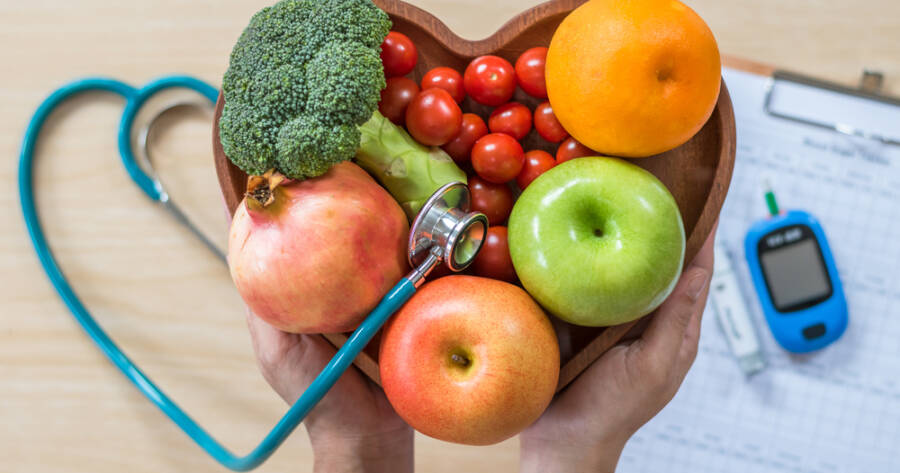While medication and insulin play essential roles, the right diet can help control blood sugar levels and improve overall well-being. Fortunately, if you start a search online today, you can learn more about the foods that can help treat diabetes.
We’re exploring a range of foods that can be beneficial in managing diabetes, making the journey towards a healthier and more fulfilling life easier. Consult a healthcare provider or a registered dietitian before making significant dietary changes.
Fatty Fish
These fish, rich in omega-3 fats, can help reduce the risk of heart disease and inflammation, common concerns for those with diabetes. Renowned members of this group include salmon, herring, sardines, mackerel, trout, and albacore tuna.
When preparing your meals, opt for broiled, baked, or grilled fish to avoid extra carbohydrates and calories that often come with breaded and fried varieties. The American Diabetes Association Standards of Medical Care in Diabetes even recommends regular consumption of fish, particularly fatty fish, at least twice a week for individuals managing diabetes.
Beans
Adding kidney, pinto, navy, or black beans to your diabetes-friendly diet can offer a wealth of nutritional benefits. These beans are nutrient powerhouses, featuring essential vitamins and minerals like magnesium and potassium.
What’s more, they are incredibly rich in fiber, which can help stabilize blood sugar levels. While beans do contain carbohydrates, they also pack a substantial protein punch, providing as much protein in just half a cup as you’d get from an ounce of meat, all without the saturated fat.
Leafy Greens
Leafy green vegetables like spinach and kale are incredibly nutritious, boasting an abundance of essential vitamins and minerals, including vitamin C. They are not only low in calories but also low in digestible carbs, meaning they have minimal impact on blood sugar levels.
Research indicates that individuals with diabetes may have lower vitamin C levels than those without the condition, and they might require more of this vital nutrient. Vitamin C serves as a robust antioxidant and offers anti-inflammatory properties.
Berries
Berries are packed with antioxidants, known for their ability to combat oxidative stress, a condition associated with various health concerns, including heart disease and certain cancers. Oxidative stress often affects people with diabetes due to an imbalance between antioxidants and free radicals in the body.
Berries help restore this balance by offering a potent dose of antioxidants and fiber. Additionally, they provide essential vitamins and minerals, including vitamin C, vitamin K, manganese, and potassium, contributing to a well-rounded and diabetes-conscious nutrition plan.
Nuts
Nuts, particularly walnuts, are packed with polyunsaturated fats, which are renowned for their ability to combat heart disease and regulate blood sugar levels. These healthy fats play a significant role in preventing and slowing down the progression of conditions like diabetes and heart disease.
Almonds, pistachios, and pecans also offer the same benefits. Nuts are low in carbohydrates and high in protein and healthy fats, making them ideal for stabilizing blood sugar.
Whole Grains
When it comes to grains, whole is the key word you’re looking for. Check the label, and the first ingredient should proudly display “whole.” Whole grains are a treasure trove of essential vitamins and minerals, including magnesium, B vitamins, chromium, iron, and folate.
What’s more, they are an excellent source of fiber, which is fantastic for managing blood sugar levels. Whole oats, quinoa, whole grain barley, and farro are just a few examples of these nutrient-rich grains.
Citrus Fruits
Citrus fruits, such as oranges, grapefruits, and lemons, are packed with essential nutrients that can benefit individuals managing diabetes. These fruits offer a great way to obtain vitamins and minerals without significantly impacting blood sugar levels, as they are relatively low in carbohydrates.
Research has highlighted the antidiabetic potential of citrus fruits, with two bioflavonoid antioxidants, hesperidin and naringin, playing a role in improving insulin sensitivity. Additionally, citrus fruits are rich sources of vitamin C, folate, and potassium, all of which contribute to overall health and well-being.
Chia Seeds
These tiny seeds boast high levels of antioxidants and omega-3 fatty acids, known for their anti-inflammatory properties. Chia seeds are also rich in plant-based protein and fiber, which can aid in blood sugar management and overall well-being.
Research has indicated their potential benefits for individuals with type 2 diabetes, with one study revealing that including chia seeds in the diet led to greater weight loss when compared to an oat bran alternative. These findings suggest that chia seeds can be a helpful ally in the management of type 2 diabetes.
Start Eating Healthier Today!
These foods, rich in nutrients and low in unhealthy carbohydrates, can help regulate blood sugar levels, reduce the risk of complications, and enhance your overall well-being. It’s essential to work closely with a healthcare provider or a registered dietitian to create a personalized diabetes diet.
A balanced diet, regular exercise, and proper medical guidance are crucial for effectively managing diabetes. For more detailed information and guidance, consider consulting with a healthcare professional or conducting additional research online. Your path to better diabetes management begins with informed choices.
